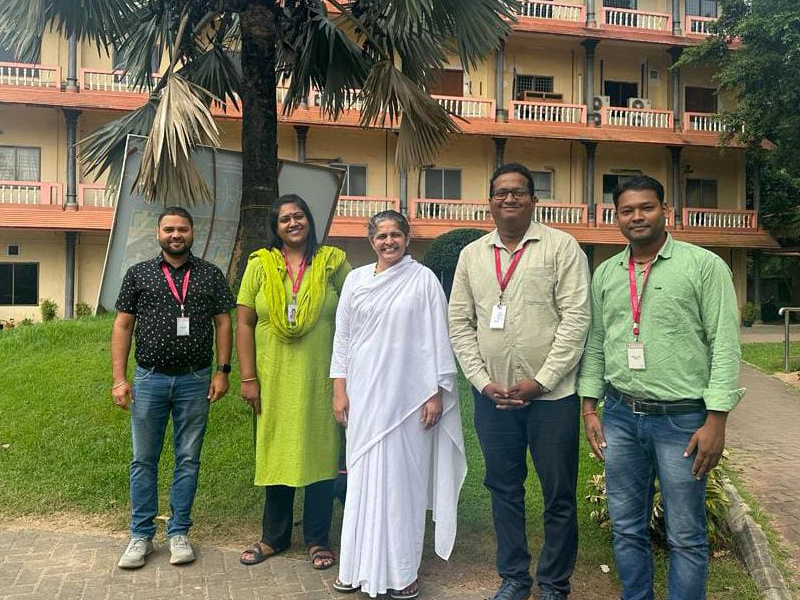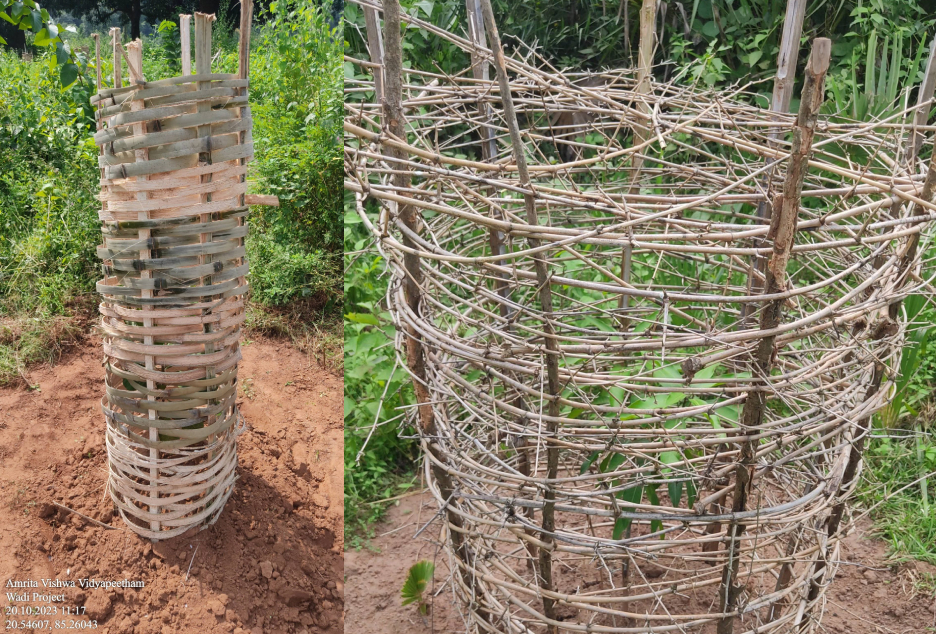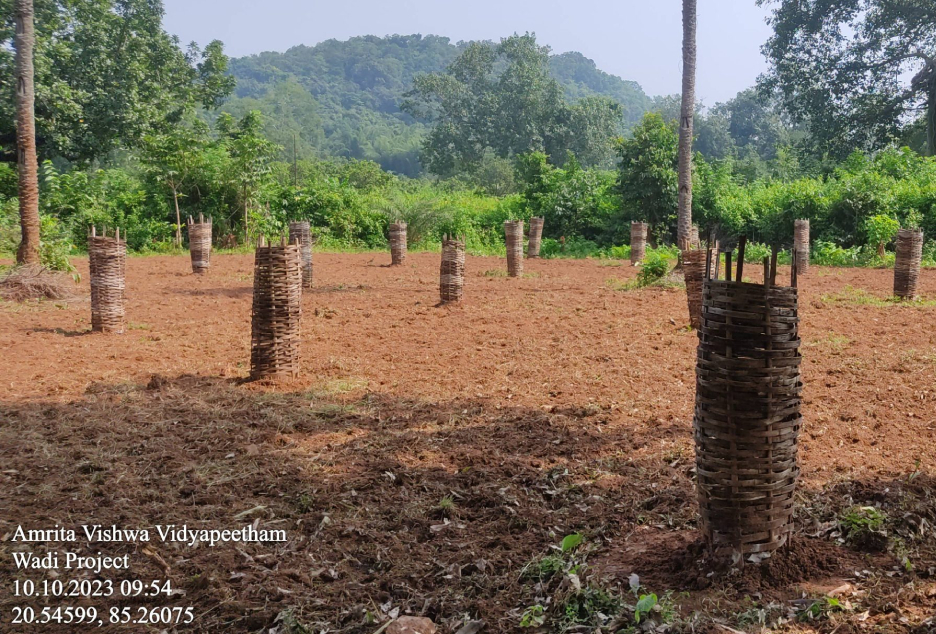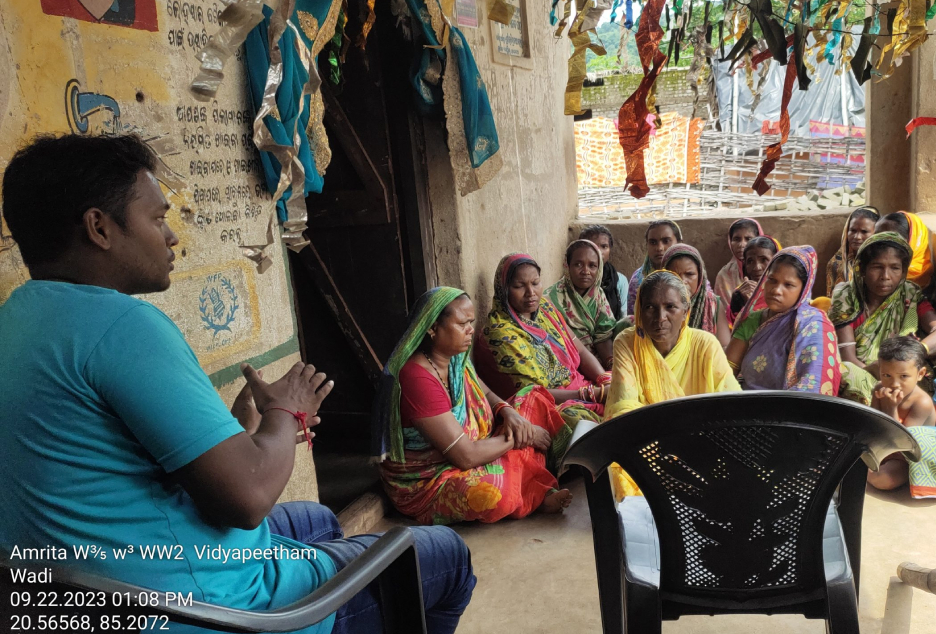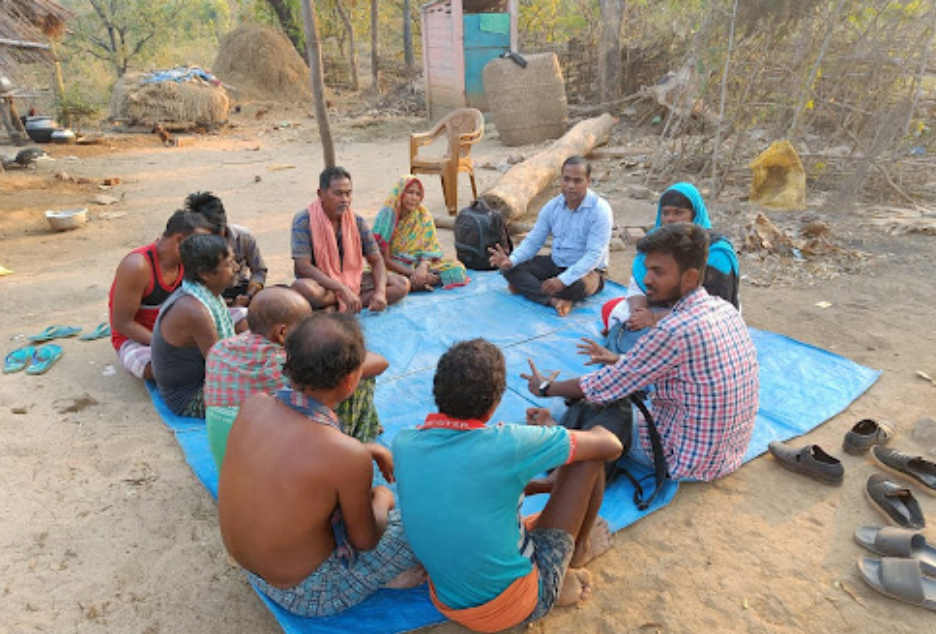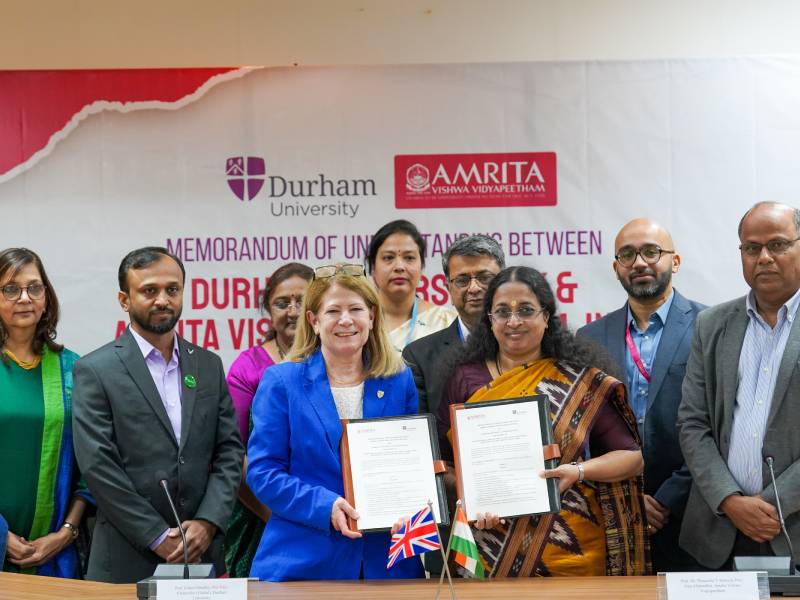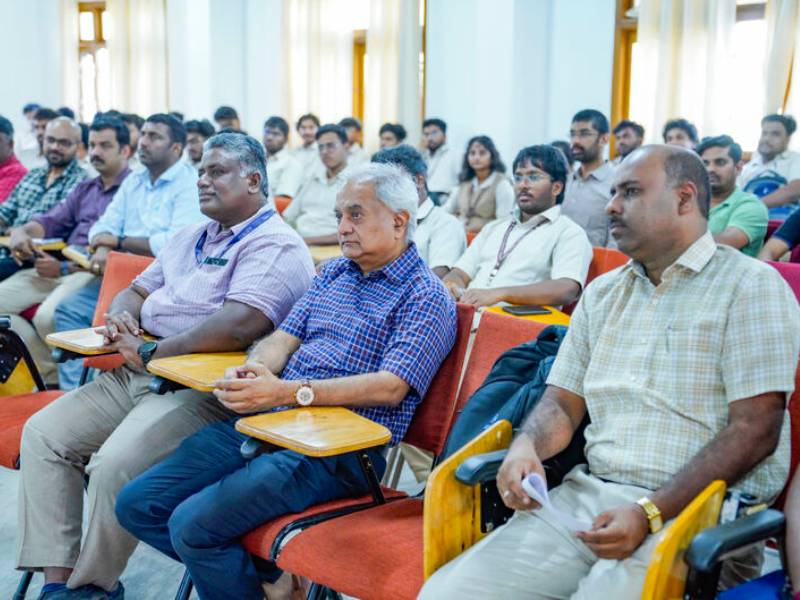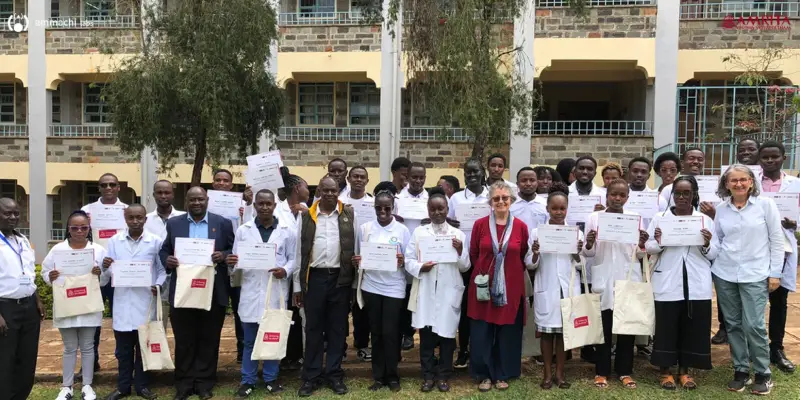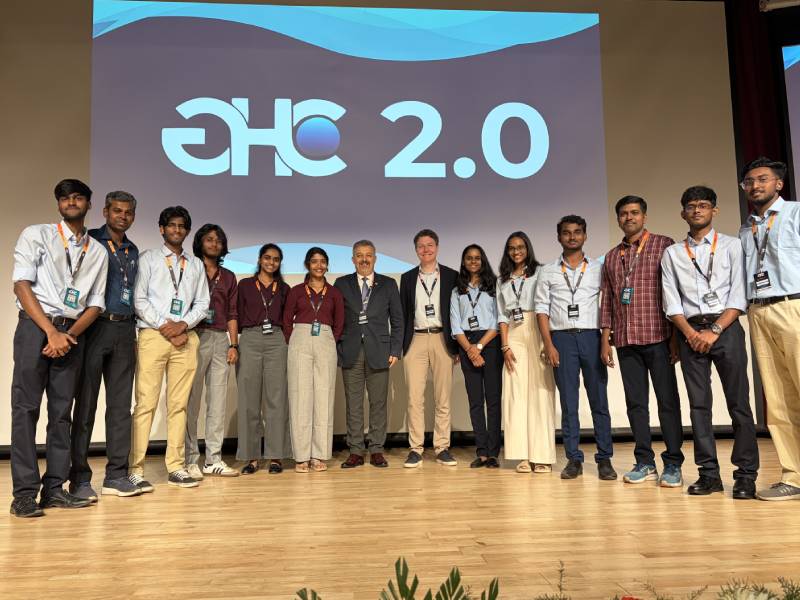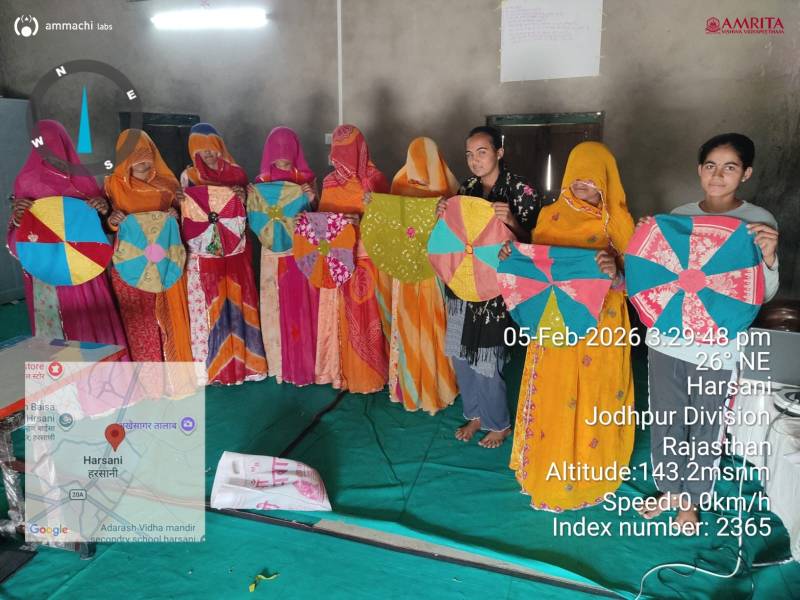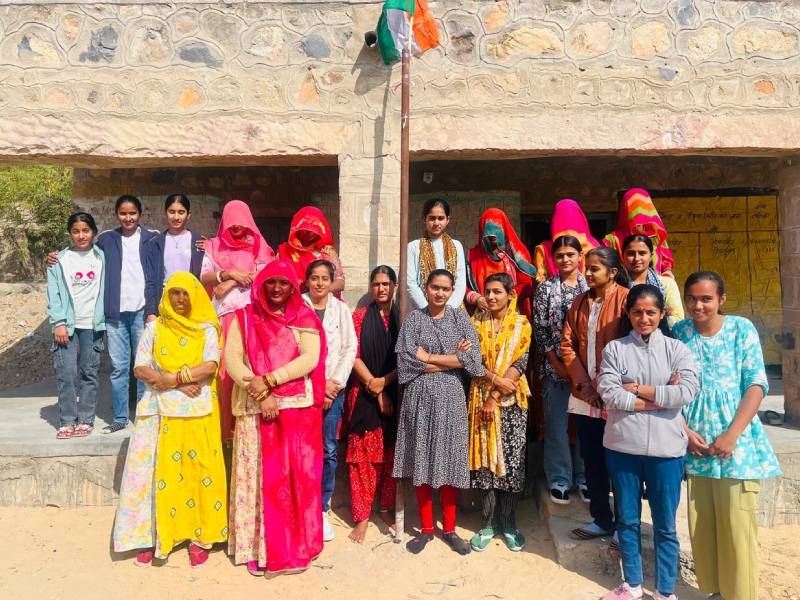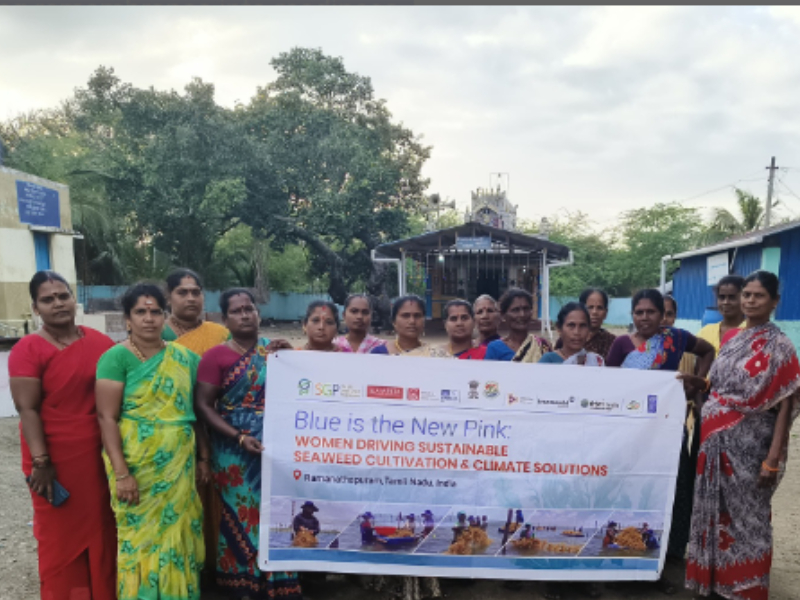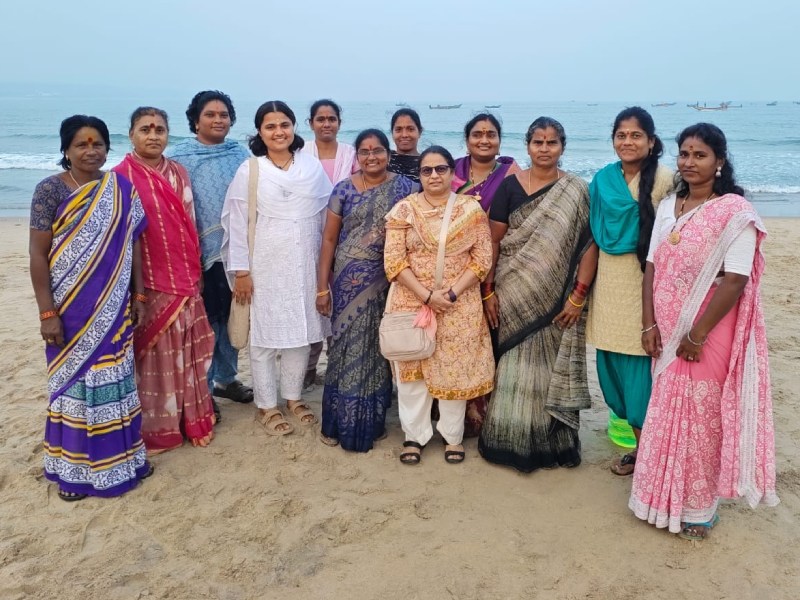Across the hills and farmlands of Hindol Block in Odisha’s Dhenkanal District, a quiet transformation is taking root. The WADI Project, led by Amrita Vishwa Vidyapeetham with support from NABARD, is helping tribal families create small orchards—called Today, the project supports over 257 farmers across six villages—Asanbania, Bramhaniapal, Gobardhanpur, Kanka, Kharmul, and Tantichira—covering more than 212.1 acres of land. But beyond crops and orchards, this project is growing something deeper: hope, skills, and self-reliance. And for Goatery 288 Women farmers or Goat rearing group beneficiaries – GRG members will be getting benefitted. The Goatery activity is a part of WADI project for farmers who are landless. Phase wise the women farmers will get goats in 12 villages with individual Goat houses or sheds for the Goats. What is a Wadi? A Wadi is a small orchard where farmers grow fruit trees like cashew and mango, alongside vegetables, herbs, and pulses. Each farmer is supported to care for their Wadi with tools, training, and follow-up support. But WADI is more than just farming—it’s about building resilience and community leadership. What’s Happening on the Ground?
Growing Fruits, Vegetables & Confidence
- Farmers plant cashew and mango trees, cared for with tree guards, trenching, and mulching.
- Intercropping (growing vegetables between the trees) is encouraged for quick income and food at home.
- Crops include brinjal, chilies, turmeric, ginger, leafy greens, and pulses—some sold at markets, some kept for family meals.
So far, over 44 acres have been intercropped, and farmers are reporting better earnings and nutrition.
Bringing Water to the Fields
Reliable water is a big challenge in these villages. To help, the project has:
- Installed 6 solar-powered borewells, each able to irrigate up to 800 meters of farmland daily.
- Completed dug wells and restored broken water lifting systems.
- Installed fencing around borewells to keep them safe from animals and protect solar equipment.
Every borewell is maintained by trained local youth, ensuring long-term care and local ownership.
Goat Rearing: A New Path for Livelihoods
To give families an extra income source, the project introduced goat rearing:
- 30 goat shelters were built by villagers with NABARD’s support.
- Each family will receive goats after the monsoon, along with training in animal care.
- Water tanks for the goats are being built, and local vets are helping with health checks.
This initiative will help families diversify income and build resilience in tough seasons.
Smart Farming with Mobile Apps
Technology is making its way into even the remotest villages through a geo-tagging mobile app developed by AMMACHI Labs.
- Community workers use the app to track plant health, plot status, and irrigation needs.
- Each Wadi is geo-tagged and monitored every month.
- Over 212 acres have already been tracked digitally—bringing transparency and data to rural development.
Community Events and Support
World Environment Day Celebration
On June 5, 2024, women villagers planted mango saplings and reflected on their role in protecting the environment. The day was full of meaning, joy, and hands-on learning for everyone.
Visits from Officials
In October 2023, the District Collector of Dhenkanal visited Kharmul, one of the most remote WADI villages. He praised the efforts of the Amrita team and the community for their dedication. In March 2024, Dr. Bhavani Rao, Director of AMMACHI Labs, visited the project, recognizing outstanding farmers and sharing future plans.
Built by the Community, for the Community
At the heart of the project are UVS groups—small committees formed in each village to manage the Wadi activities. These groups:
- Hold monthly meetings to plan, troubleshoot, and track progress.
- Manage records, funds, and training.
- Include women, youth, and lead farmers, ensuring that the project reflects the community’s voice.
What’s Next?
New saplings and gap-filling in Wadi plots Solar fencing in 21 more acres Goat distribution and water tank installation More intercropping for the Kharif & Rabi season Ongoing geo-tagging and mobile monitoring Monthly UVS meetings and farmer trainings
Voices from the Field
“Before, our land gave little. Now with intercropping, we eat better and earn more. Even my kids help in the garden!” — Asha, Farmer from Tantichira “I never thought I could monitor plant health with a phone. This app makes me feel proud and in control.”
